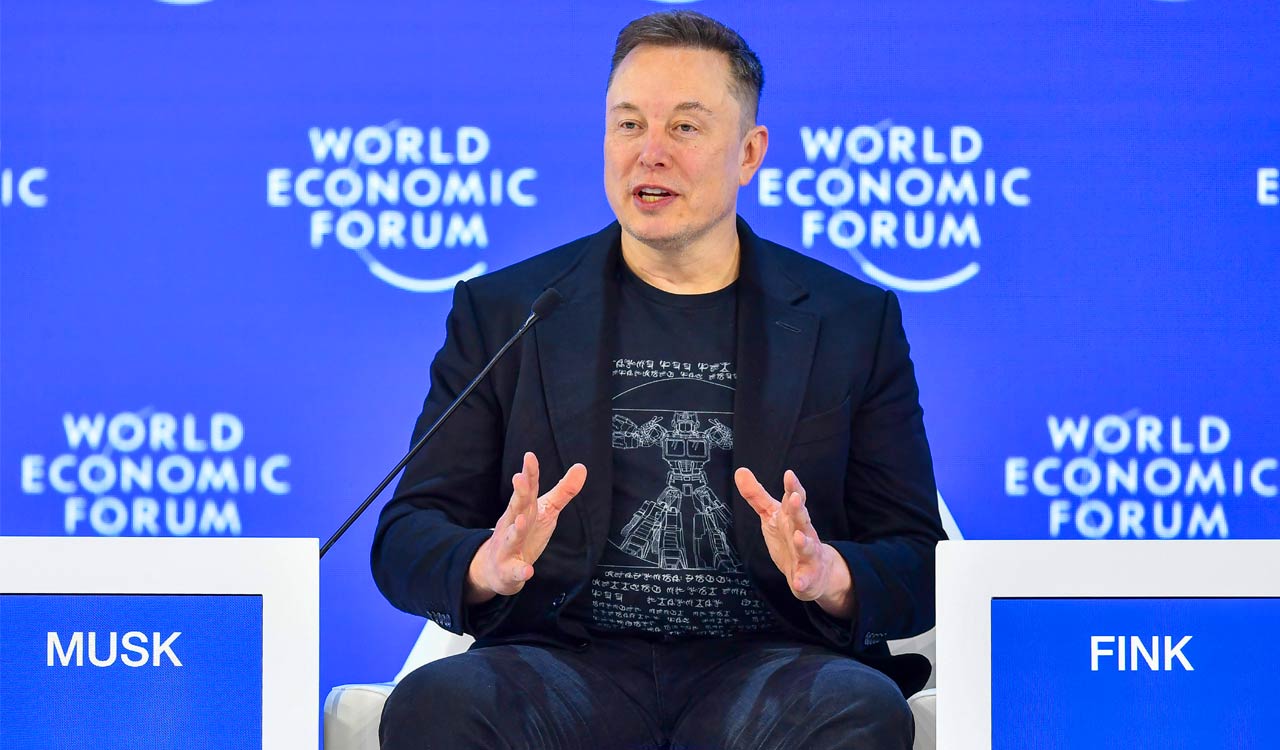Twitter pops in poison pill to stop Musk from acquiring it
Hyderabad: SpaceX Founder Elon Musk has been investing in micro-blogging platform Twitter. Currently, he has a little over nine per cent. Despite this, he is still a minority stakeholder. Musk said the listed Twitter should go the private way to support free speech. He offered to buy 100 per cent of it for $54.20 per […]

Hyderabad: SpaceX Founder Elon Musk has been investing in micro-blogging platform Twitter. Currently, he has a little over nine per cent. Despite this, he is still a minority stakeholder. Musk said the listed Twitter should go the private way to support free speech. He offered to buy 100 per cent of it for $54.20 per share in cash. The unsolicited offer valued Twitter at over $ 43 billion.
Musk said if the deal does not work he would reconsider his position as a shareholder. “This is not a threat, it’s simply not a good investment without the changes that need to be made. And those changes won’t happen without taking the company private,” Musk reasoned out.
Twitter pops a poison pill
Twitter, in its bid to thwart the unsolicited takeover offer, has now adopted this defensive tactic called the limited duration shareholder rights plan. This plan is commonly called a poison pill. In a filing to the stock exchange, Twitter said the plan would ‘protect stockholders from coercive or otherwise unfair takeover tactics.’ Twitter’s poison pill makes takeover difficult and costly too.
What is a poison pill?
Poison pills were devised in the 1980s as a way to prevent takeover bids by taking away a shareholder’s right to negotiate a price for the sale of shares directly. Such a plan gives shareholders the right to buy more shares at a discount if one shareholder buys a certain percentage or more of the company’s shares.
The goal of a poison pill is to force a bidder to negotiate with the acquisition target company’s board and not directly with the shareholders. It gives the company management time to find competing offers that maximize selling price.
Variants of poison pills
The target company issues a large number of new shares, often preferred shares, to existing shareholders. These new shares usually have severe redemption provisions, such as allowing them to be converted into a large number of common shares if a takeover occurs. This immediately dilutes the percentage of the target owned by the acquirer, and makes it more expensive to acquire the target company’s stock. A ‘flip-in’ poison pill permits shareholders, except for the acquirer, to purchase additional shares at a discount. This provides investors with instantaneous profits.
How poison pills work?
If a poison pill is triggered, all other shareholders will be able to buy more shares at a discount. The shareholder who triggers the poison pill will be blocked from making these discounted stock purchases. Such purchases would dilute the bidder’s interest and the cost of the bid would rise substantially. This will discourage the bidder to take over a company without its board’s approval and would negotiate with the board.
Twitter said a significant penalty will be imposed on any investor that builds up a stake of at least 15 per cent in Twitter without board’s approval. Musk now has about 9.2 per cent. On Musk breaching the 15 per cent limit, other shareholders of the company would get the right to buy additional shares at a discount. If Musk were to trigger the poison pill, he will be blocked from making these discounted stock purchases. It implies that the about $2.6 billion Musk already invested in Twitter will reduce in value. Musk will have to spend more than the $43 billion he already proposed.
Purpose
The poison pill or the Rights Plan reduces the likelihood that any entity, person or group gains control of a company through open market accumulation without paying all shareholders an appropriate control premium.
In this case, Twitter stockholders as of April 25, will have the right to buy one one-thousandth of a share of preferred stock for each common share they own, at a price of $210. Also, the poison pill does not prevent Twitter Board from engaging with parties or accepting an acquisition proposal if it believes it is in the best interests of Twitter and its shareholders.
Past experience
It is reported that since 1997, for every company with a poison pill which successfully resisted a hostile takeover, there were 20 companies with poison pills that accepted takeover offers. The trend since the early 2000s has been for shareholders to vote against poison pills. While poison pills resist takeovers, they can be financially rewarding too (from shareholder’s point of view). Poison pills surged in 2020 due to pandemic. As stock prices fell due to pandemic, various companies turned to shareholder rights plans to defend against opportunistic takeover offers.
Companies with poison pills (shareholder rights plans) have received higher takeover premiums than companies without poison pills. This results in increased shareholder value as the negotiating power of the target is reflected in higher acquisition premiums.
Now you can get handpicked stories from Telangana Today on Telegram everyday. Click the link to subscribe.
Click to follow Telangana Today Facebook page and Twitter .
Related News
-
Four new astronauts arrive at International Space Station to replace NASA’s evacuated crew
-
Elon Musk targets self-growing Moon city within 10 years
-
US senators urge Pentagon review of SpaceX over alleged Chinese investments
-
Billionaires 4,000 times more likely to hold political office than ordinary people: Oxfam
-
PM Modi becomes most followed world leader on Instagram with 100 million followers
4 hours ago -
Will fix accountability, take action against those involved: Education minister on NCERT row
5 hours ago -
PM Modi and PM Netanyahu hold talks to solidify India-Israel strategic ties
5 hours ago -
Nabi takes Jammu and Kashmir in command as Karnataka struggles in Ranji Trophy final
5 hours ago -
Traffic curbs imposed at Jubilee Hills check post for flyover works
5 hours ago -
Proteas crush West Indies by nine wickets to boost T20 World Cup semifinal hopes
5 hours ago -
Abhishek Sharma, Hardik Pandya lead India to 72-run victory over Zimbabwe
5 hours ago -
Kasheem century helps Sports XI CC clinch 39th D Sekhar Rao Memorial final
5 hours ago




